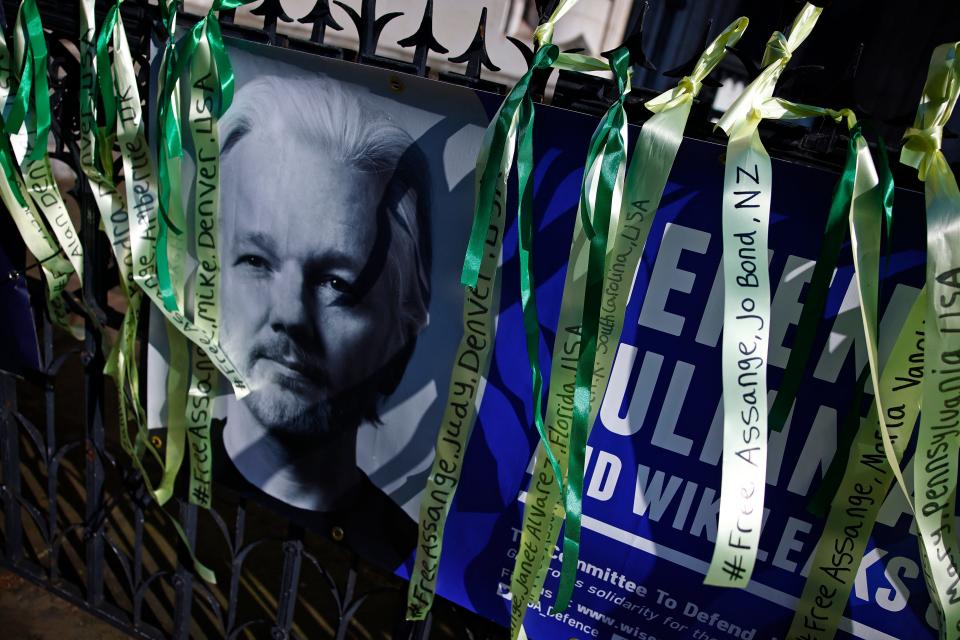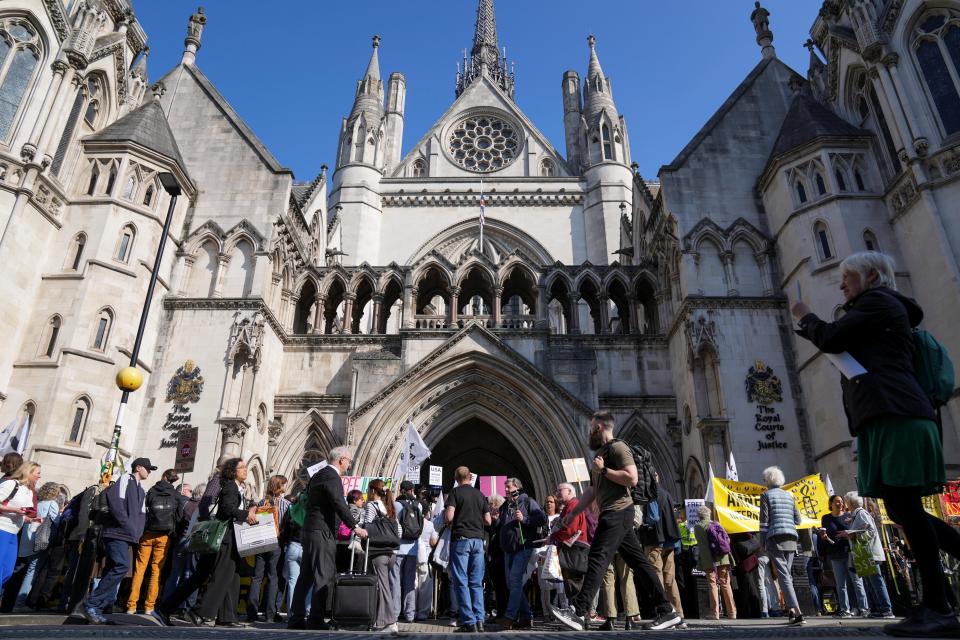WikiLeaks' Julian Assange to admit violating Espionage Act, will be sentenced to time served: DOJ
WikiLeaks founder Julian Assange, who has fought extradition for years to avoid facing charges of releasing an enormous trove of classified information about U.S. military activity in Iraq and Afghanistan, has agreed to plead guilty to violating the Espionage Act, according to federal court records.
Under the terms of the plea with U.S. prosecutors, Assange will get no more detention time than the 62 months he has already served in the United Kingdom. Assange is set to be released to Australia, his country of citizenship, after a Tuesday court proceeding is over, according to federal records.
Assange agreed to plead guilty to one count of conspiring to unlawfully obtain and disseminate classified information relating to the national defense of the United States, according to a letter accompanying charging documents filed in U.S. District Court in the Northern Mariana Islands, a U.S. territory in the Pacific.
The court hearing federal court in Saipan was arranged because of Assange's opposition to visiting the continental U.S.

Assange is scheduled to plead guilty and be sentenced at the same hearing on Tuesday at 7 p.m. EDT, according to a letter from U.S. Attorney Shawn Anderson. Chief U.S. District Judge Ramona Manglona agreed to hear the plea.
Assange’s wife, Stella, posted a short video that appeared to show him boarding a plane for the court appearance.
“Julian is free!!!!” Stella Assange posted on X, formerly known as Twitter, while thanking his supporters.
The 52-year-old Assange gained worldwide attention in 2010 after revealing the biggest security breach of its kind in U.S. military history. WikiLeaks released more than 90,000 documents related to Afghanistan and later published more than 400,000 documents from the war in Iraq. The documents included information about civilian deaths, the hunt for al-Qaeda leader Osama bin Laden and Iran's backing of militants in Iraq.
Former U.S. Army intelligence analyst Chelsea Manning served years in prison for leaking the documents to WikiLeaks. Former President Barack Obama commuted her sentence after she served seven of 35 years.
But Assange’s case proved difficult to prosecute both politically and geographically. He argued that he was a journalist and that Wikileaks published secret documents as major American newspapers routinely do.

The Justice Department under Obama didn’t charge him. But during former President Donald Trump’s administration, the department secured an indictment in 2019 on 17 charges of espionage and one charge of computer misuse.
Assange's critics argued he wasn’t a journalist because he didn’t write stories or interview anyone or provide sufficient explanatory context to explain the raw classified documents and data that he released.
"WikiLeaks walks like a hostile intelligence service and talks like a hostile intelligence service," then-CIA Director Mike Pompeo, said in April 2017 in his first public speech as head of the spy agency. "Assange and his ilk," Pompeo said, seek "personal self-aggrandizement through the destruction of Western values."

Journalism advocates lamented the plea agreement.
Jameel Jaffer, executive director of the Knight First Amendment Institute at Columbia University, said the agreement ratified Assange spending five years in prison for activities journalists engage in every day.
“It will cast a long shadow over the most important kinds of journalism, not just in this country but around the world,” Jaffer said.
David Greene, civil liberties director for the Electronic Frontier Foundation, an advocacy group for free speech and digital privacy, called the plea agreement “a conviction for basic journalistic acts.”
“This sets a dangerous precedent, and all those who value a free press should work to make sure that it never happens again,” Green said.
Assange’s lawyers argued the charges were politically motivated. He fought extradition, initially taking refuge in the Ecuadorian Embassy in London to avoid charges in Sweden, which have since been dropped, because he feared Sweden would extradite him to the U.S.
Assange has been jailed for years in Belmarsh Prison, first for jumping bail on the Swedish charge and later because he was considered a flight risk during his extradition fight.
The United Kingdom High Court ruled in May that he would have another chance to fight his extradition in the yearslong court battle.
The Justice Department reached the plea agreement because of uncertainty about the case after recent court rulings.
This article originally appeared on USA TODAY: Julian Assange agrees to admit violating Espionage Act: DOJ


